As a part of the human rights protection and promotion work, Huron visits prisons and detention centres to safeguard the human rights situation. The prison in Nepalgunj is quite small and houses about 200 prisoners, of those some 25 women. Men and women are separated, however it is the same prison and from the respective upper floors they were talking to each others calling over the wall. In the women’s part, which I only saw through the gate, there were also some small children living together with their mothers. The children are allowed to stay until they turn 10, then they have to go somewhere else. In the men’s part the youngest prisoners were 14 years old, and there is no kind of separation from the adult prisoners, not even at night when they are locked up.
Food has to be prepared by the prisoners themselves why there are several clay stoves around the outer wall. The stoves are not nearly enough and I doubt the new ones being created will change that very much. The prisoners receive 250 g of rice per day, plus 30 Rupees (around 3 SEK) to buy the rest of the food they need. Some of them have started doing business by cooking lots of food and selling it to the others.
The rooms are small and dark, and since there is no glass in the windows they are extremely cold during winters. There is no heating, but at least they are provided with a, small and dirty, blanket for the cold nights. I imagine it is extremely hot it is during the summer, and I don’t think the fan that is in each room makes much of a difference unless positioned directly under it. There is no furniture whatsoever in the rooms, only small mats for each prisoner to sleep on, and hooks on the wall for them to keep their belongings on. The room for each prisoner is about 45 cm. Each room has a toilet (hole in the floor), but the prisoners have to clean it, as the rest of the room, themselves why of course it is not very clean. New toilets are being constructed outside, which apparently is an achievement of previous visits and remarks made by Huron and other organisations. There are no bathrooms so washing can only be done in the toilets, or under the one water hose I saw outside which does not give much privacy - but then again Nepalis don't really care for privacy.
I was positively surprised with the condition, and with facilities such as a TV-room, library, class room and the possibility to practice different religions. The living conditions are thus not good, but much better than I thought. However, legally there are problems with many of the prisoners' cases and trails; it is for example a big problem that many of them are still awaiting judgement, even after periods of up to eight years. Many are also still awaiting trial. Thus the main problem lies in the judiciary, not in the prison themselves, and about this I still do not know enough.
I no longer live in Nepal, and I have started a new blog about my next mission as a Civilian Observer in DR Congo. But after not updating this blog for more than a year, I still have so many pictures I want to share - therefore a link to this from the Congo blog, and new posts..
Here some links to friends' weblogs and other






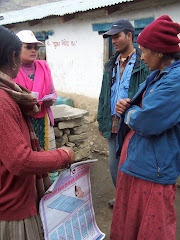











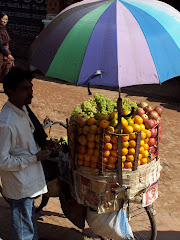











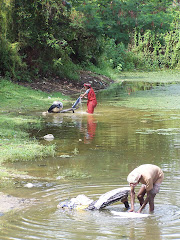







engagement party

the flowers are real heavy, still they asked me to dance...

...so I did...

...and once I get started there's no stopping me

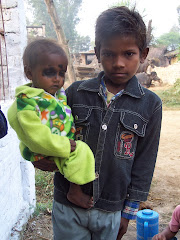






They claimed he was at school during the days, but it was evident that he did a lot of work in the family business too

My beautiful tailor, how I miss her!






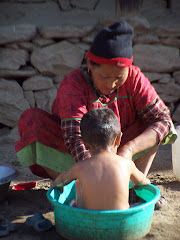
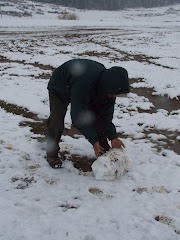


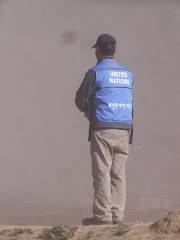

Black umbrellas are for sure the most useful item during this time of the year, protects from the heave rain as well as the mercyless sun!

The hair was part of the Swedish outfit, climbing the tree was just for fun!

Maybe not so strange that the clothes are sometimes still dirty after washing...

Bandana, LHRA of Huron

Enjoying a break from the session.

This is Sita, a Tharu girl that used to work as a maid for my previous landlord. She was planning to go to police school, and was volunteering at Huron to learn some skills while waiting for an opening. However, her participation in the youth parliament changed her future; she found a boyfriend and has now gone home to marry. Her life is typical for so many Tharu girls, being exploited at work for feudal employers and I was sad to see her leave the possibility of becoming independent.
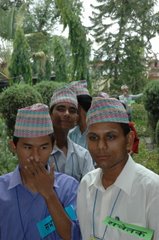
Minsters of the youth parliament

Working on the questions to the ministers

There is always time for a song!

Khaanaa Khanubhayo? Have you eaten, the most important question of them all!

Sometimes the discussions are too much even for a nepali...

Pokhara - Phewa thal

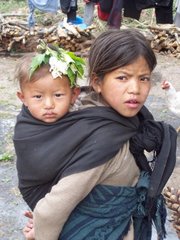
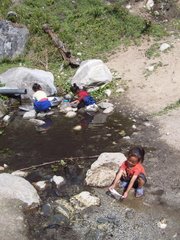
Doing the laundry

Firewood is crucial for survival and every day they walk huge distances carrying enormous loads. More often than not it is the women and children doing this work but exceptions are seen.

Local ambulance! The lack of infrastructure makes life hard for them living in the hills and mountains. Roads are being built also in these areas now but this will probably be a never ending project since they will most likely be destroyed by landslides every monsoon.

On the way up to 5400 meters the sun is really strong, and the new snow reflects it making sun glasses and sun block the most important equipment

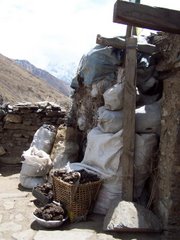
Above 5000 m there are not that many trees to be found so dry Yak dung is collected and used for fires. Surprisingly it does not smell at all and provides really good head

Transporting chicken up the mountain
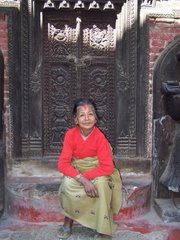


Breaking through a bandha...
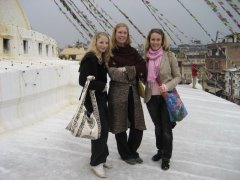
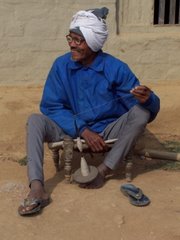
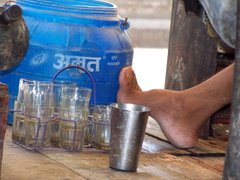


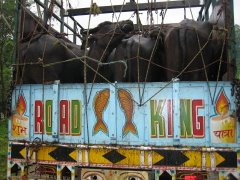


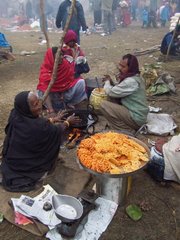


The Maoists are still active, not only politically, here students marching in their Prachande t-shirts

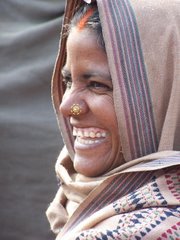




Ganesh and Sunita, my landlords
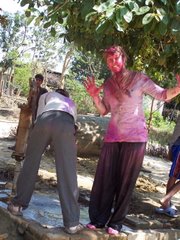
It was a blessing that there are wells available at many places

Giving and getting Tika with Bhupendra's parents
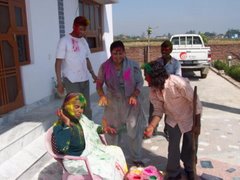
Starting to play at home together with family and LHRA-friends
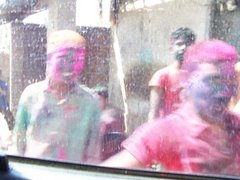
Luckily the window stopped us from being soaked...

It's sometimes seems hard for the children to decide whether my car or the festival of the day is the most fun game...



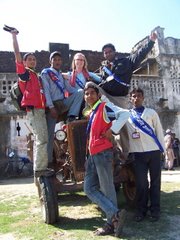

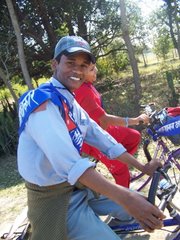
Ram Sing in our cycle rally

Even in Kathmandu water has to be fetched by the public well, usually by the children
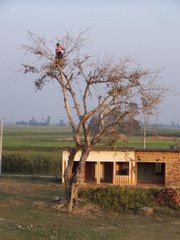
My landlord's sending the maid to pick fruits for achar - pickle's

Do I need to say more about the roads of Nepal?

A little girl at Kathmandu Durbar Square selling flowers

I did make it across the water, but the bank on the other side was too steep and slippery so, yes I have to admit it, I fell over with the bike back into the mud cause I was driving too slow. Apart from having to drive the rest of the day all wet (I was happy for the ski gear i was wearing as a protection against the cold) all that happened was that the bike, and I, became quite dirty...
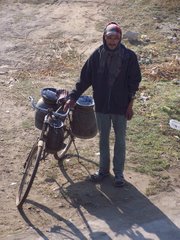
Yoghurt can be delivered to the house, extremely convenient for lazy weekends

students often sit outside during the cold season to stay warm. Apart from no heating, or no fans for the hot season, and no toilets, this school also has many problems getting educated teachers to stay, and the children to come.
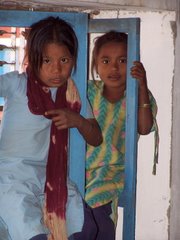
Two young girls listening to me trying to tell them in Nepali about child rights and the right to education
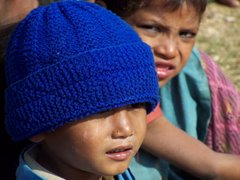
In Sweden it's always hard to get children to wear winter cloths, it's just not cool enough. Children in Nepal however have no problems wearing caps, even though it's not really that cold in the middle of the day

Of all the ways there could be to make a basket, this might not be the worst one...
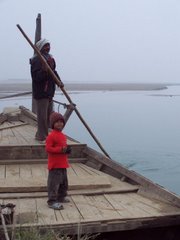
A boat crossing Rapti river
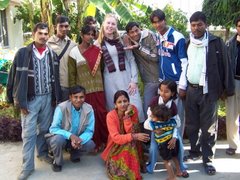
Spot the bideshi (mzungu)...
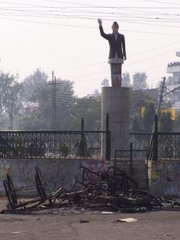
BP chowk after unrest due to the appointment of ambassadors without inclusion of everyone in the process

A maoist demonstration after rumors that the government were buying weapons from Ukraine
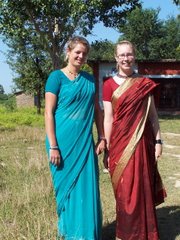
It's certainly not easy to put on a Saari so we don't wear it that often. Here we are outside one of Anne's offices, dressed for another festival - food and dancing to come.

a tipical village meeting

stuck in a landslide...

Human rights training - playing a game

flat tire - change of innertube. The car is a central part of my life here...

Machhapuchhare

burning tires in a chakka jam

eating the Nepali way, at a colleague of Anne's

Anne at Teej, a women's festival.
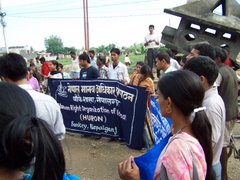
Peace rally at the International Peace Day, behind Huron's banner carried by some of our LHRA's is a statue that was destroyed during the Janaa Andolan II

Christmas feelings in Nepalgunj

Mustard field in the Terai, or rape (raps) field in Sweden. Gives me homely feelings anyway

Resting in the Himalayas

I always thought the yellow are from the birds, or the coulor fading - turns out is safferon

Me and my car at the MS headquarter/guesthouse

You have successfully reached the end of the blog, Thank you for visiting!